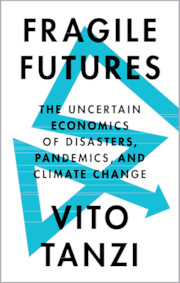Book contents
- Fragile Futures
- Fragile Futures
- Copyright page
- Contents
- Acknowledgments
- Epigraph
- Part I Uncertain Future Events and Reactions to Them
- Part II Pandemics and Other Disasters
- Part III Climate Change and Global Warming
- Part IV Back to Some Theoretical Issues
- 15 Human Needs and Economic Theory
- 16 Concluding Thoughts
- References
- Index
15 - Human Needs and Economic Theory
from Part IV - Back to Some Theoretical Issues
Published online by Cambridge University Press: 28 April 2022
- Fragile Futures
- Fragile Futures
- Copyright page
- Contents
- Acknowledgments
- Epigraph
- Part I Uncertain Future Events and Reactions to Them
- Part II Pandemics and Other Disasters
- Part III Climate Change and Global Warming
- Part IV Back to Some Theoretical Issues
- 15 Human Needs and Economic Theory
- 16 Concluding Thoughts
- References
- Index
Summary
Description: This chapter goes back to economic theory and to the question of how to handle “uncertain events,” events whose probability of occurrence cannot be estimated statistically. Some of these are global, in the form of “global public bads.” There are two basic issues: first, the world is fragmented into countries with national governments; second, humans must be protected to the extent possible against “risks,” as well as against “uncertain bad events” (pandemics, global warming, etc.). “Global public bads” need global coordination to better deal with them, but that is difficult in today’s world because of conflicting interests and “free riding.” <break>The traditional government role has ignored the impact of “uncertain events” and has focused on promoting higher living standards, with little attention paid to long-run sustainability and short-run equity. Market prices have not been adjusted to reflect social costs, and monetary and tax policies have not been adjusted to deal with the pandemic, while continuing to ignore global warming. There are great difficulties for governments to act in isolation. The existing global political architecture has created obvious difficulties in dealing with global public goods and bads.
Keywords
- Type
- Chapter
- Information
- Fragile FuturesThe Uncertain Economics of Disasters, Pandemics, and Climate Change, pp. 195 - 210Publisher: Cambridge University PressPrint publication year: 2022



